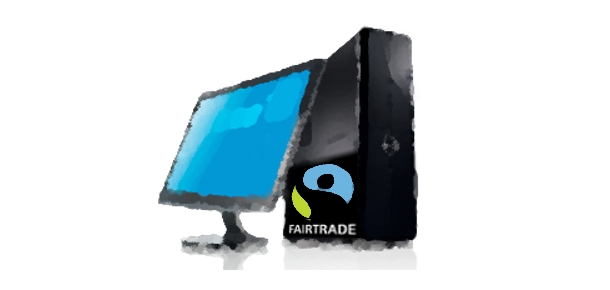At what dollar amount would you sell your concern for others? As American consumers, we unknowingly do so every day, in myriad ways. While some shocking cases of sweatshops have come to light over the years, the average person doesn’t put much thought into who creates the products they use. Or, more importantly, how.
In the 1980s, there was a strong campaign for products made in America. Commercials, such as the one below, urged consumers to look for the “Made in the U.S.A.” tag.
[yframe url=’http://www.youtube.com/watch?v=JigPsUEgmXs&feature=related’]
The focus at the time was on how buying foreign-made goods was affecting the American economy. Factories were shutting down, jobs were moving overseas, and the working class was suffering. The patriotism resonated, but the prices didn’t compare. Consumers could get more for their dollar if they bought goods produced off shore. Of course, jokes abounded about the quality. “Made in Taiwan” became synonymous with “Will break in two days” for many consumers. But suddenly some products that were made in Japan turned out to be good quality. Sony went from being the cheap non-American brand of TVs to a major market-sharer and leader in electronics. Kia went from being the car you bought when you couldn’t afford anything else to producing one of Consumer Reports’s top-rated minivans.
As it stands today, shoes, toys, electronics, clothes, and household items all bear tags that show they’re made overseas.
Yet somehow, it came as huge surprise to Americans when it was revealed recently that Apple products are made by Foxconn, a Chinese company with horrendous worker conditions. The Daily Show covered the topic, as did news organizations such as The Guardian and CNN. With over 800,000 workers, employees live in a self-enclosed massive complex. They sleep eight to ten people in a room, many of whom remain strangers to one another. As of June 2010, salaries were $176 a month. At 20 workdays a month, eight hours a day, workers earned $1.01 per hour. A proposed raise after three months of special training and probation would bring hourly wages to $1.83. The Daily Show found evidence that some salaries are as low as $0.31 an hour, and shifts have at times gone over 30 hours.
Employees who try to unionize face jail time. With so few options, some workers have started taking their own lives. The complex in Shenzhen has nets up to catch the bodies of employees who attempt to commit suicide. What are we gaining by using people so cheaply? The iPod, a product made at Foxconn, would cost 23 percent more if made in the U.S.
Many Americans don’t seem to understand how much is produced overseas and how little we know about the working conditions. Ethical-minded consumers have advocated on behalf of coffee farmers and cacao farmers for fair pay and to ensure workers are treated well. Now, you can find fair-trade chocolate and coffee in most major groceries stores. Consumers have made the statement that we’re willing to pay more for products if it means we don’t have blood on our hands by association. I’ve found that paying more for chocolate and coffee also makes me appreciate the product more, and I’m ready to do the same with my electronics. I want a company that says, “We can ensure this product was made by someone paid a fair amount and treated justly.”
I can’t buy a product that may have driven someone to take their own life. Can you?


Comments are closed.